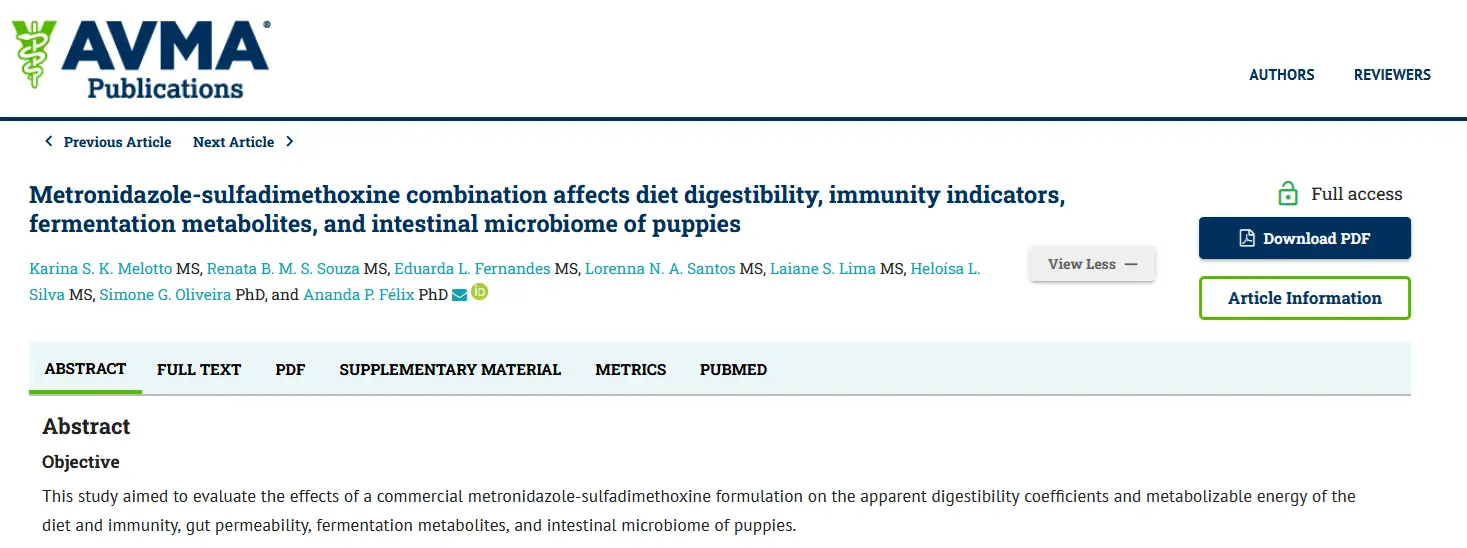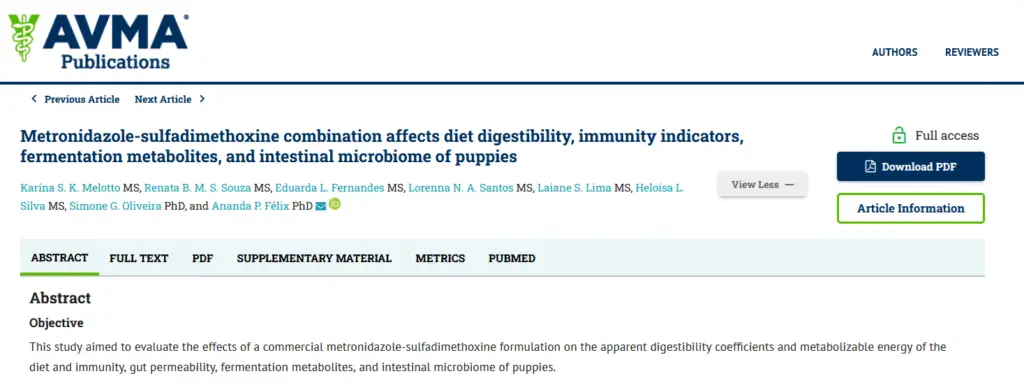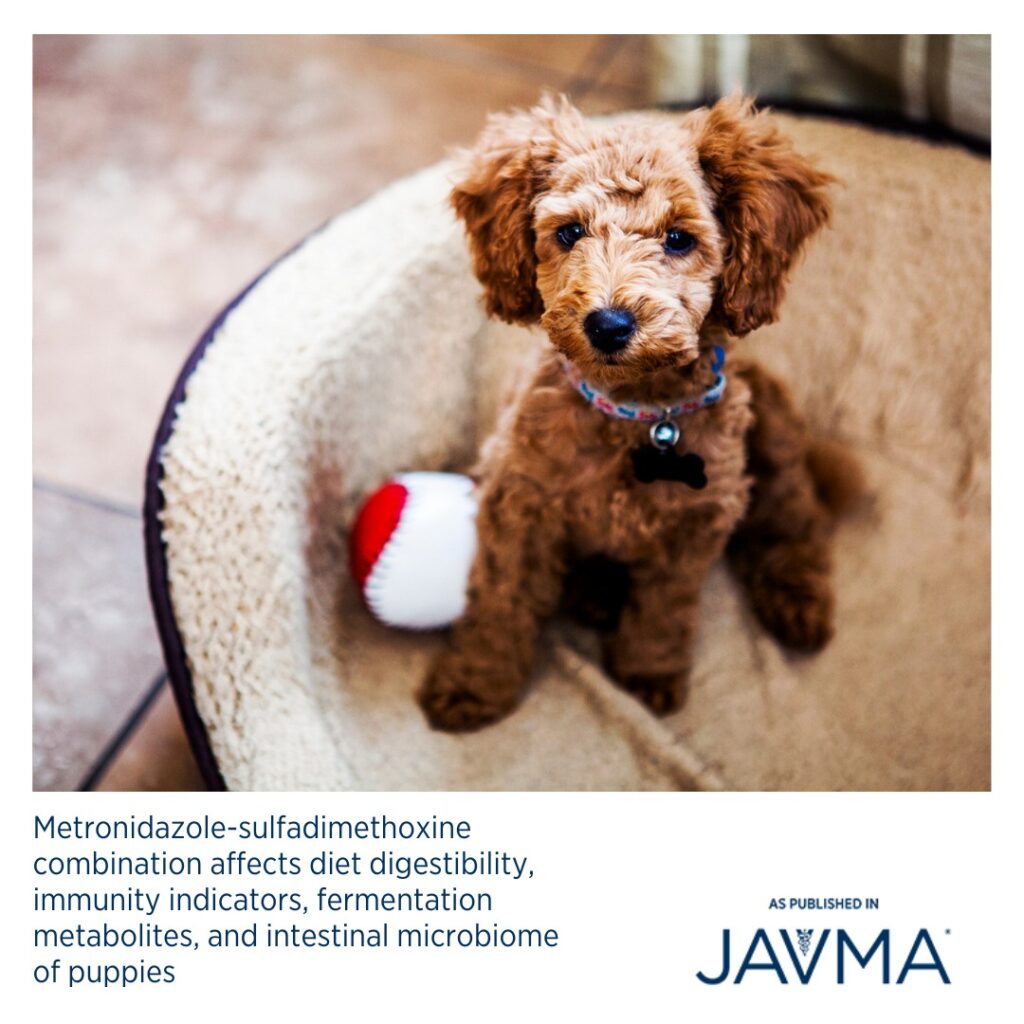Study into Common Tummy Meds for Puppies

A study published in the Journal of the American Veterinary Medical Association in June 2025 looked at the effects of giving healthy puppies a combination of metronidazole-sulfadimethoxine. This study into common tummy meds for puppies found some not great outcomes in markers of intestinal health.
Metronidazole for Puppies
In my personal experience, veterinarians sometimes prescribe metronidazole for puppies who test positive for giardia, a tummy parasite. We’ve given this particular tummy med to our own dogs and to some of the foster puppies.
Sulfadimethoxine for Puppies
The study says that veterinarians typically use sulfadimethoxine for puppies who test positive for coccidia, another tummy parasite. I suspect we also have given this med to our dogs and maybe some of the foster puppies, but I honestly don’t remember using it specifically.
Why Give 2 Common Tummy Meds for Puppies Together?
According to the published study, veterinarians sometimes prescribe these 2 common tummy meds for puppies together “to broaden [sulfadimethoxine’s] effects.

Study Overview
Fair warning, this study only used 12 beagle puppies in a lab, ranging in age at the start from 51 to 79 days old. So, this is a small study.
- Six as a control group, not receiving any meds.
- Six as the study group, receiving the metronidazole-sulfadimethoxine combination for 5 days.
Researchers then studied the puppies for a total of 80 days, where they all ate the same food.
The lab team assessed the nutrient digestibility, metabolizable energy, and fecal characteristics through pretty involved fecal testing. The collected feces from all the puppies for 5 days (days 20 to 25 of the experiment).
They looked at the fecal immunoglobulin A, fermentative metabolites, and microbiota, using fresh stool samples (up to 15 minutes after defecation) on days 20, 50, and 80.
Researchers also completed blood tests on “days 20, 50, and 80 of
the experiment for inflammatory analysis, oxidative markers, and intestinal permeability. Before blood collection, the dogs were submitted to a 12-hour fasting period.”

Study Results
Giving puppies the combination of these common tummy meds resulted in the following changes:
- Reduced the diet apparent digestibility coefficients of dry matter, organic matter, and crude protein
- Resulted in lower butyrate and higher branched-chain fatty acid concentrations in feces
- Higher serum concentrations of nuclear factor κB and higher intestinal permeability
- Reduced fecal immunoglobulin A (days 50 and 80), bacterial diversity, and genera such as Blautia and Turicibacter
Study Conclusions
Giving combination of metronidazole and sulfadimethoxine “may negatively affect markers of intestinal functionality, increasing inflammation, and compromising the intestinal barrier function in puppies.
Clinical Relevance
“Antimicrobials may negatively affect intestinal health indicators in puppies, and veterinarians should consider their use carefully.”

